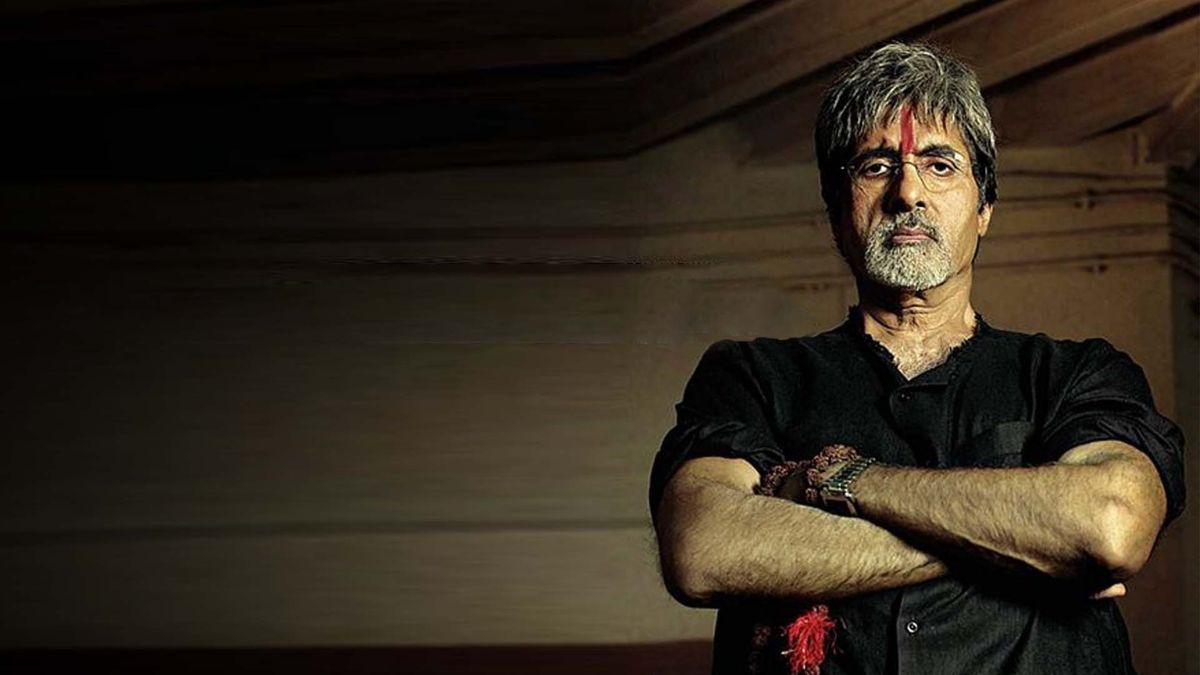Ram Gopal Varma's 'Sarkar' turns 20: Why the film (and Amitabh Bachchan's magnificent performance) still holds up

In The Godfather, we never get to see Vito Corleone's men viciously beating up the men who sexually assaulted the daughter of one of the Don's well-wishers. We only saw the father expressing his gratitude later. In Mario Puzo's original novel, there's a mention of how the Don resolves this issue. Ram Gopal Varma, however, opted to show Subhash Nagre's (Amitabh Bachchan) men inflict severe damage on the culprits in Sarkar. What Francis Ford Coppola chose not to show in his film, RGV did. Both approaches are right. RGV did what he felt was right, keeping in mind the sensibilities of Indian moviegoers. Coppola did what was right for his film. RGV was not, after all, trying to replicate the latter's work.
Sarkar is one of the RGV films I occasionally revisit and still don't tire of. I regard it as one of the best adaptations (or inspirations) of The Godfather (the novel and the 1972 film) alongside Mani Ratnam's Nayakan (his Chekka Chivantha Vaanam also bears unmistakable influences) and Amal Neerad's Bheeshma Parvam. Bharathan's Thevar Magan comes close. I was pleased to notice, in the Bheeshma Parvam opening credits, tributes to RGV alongside Mario Puzo, Mani Ratnam, Bharathan, and others. Neerad regards Sarkar as an influential film, and I'm inclined to agree with him. In this day and age when some folks indulge in the ridiculous practice of loosely throwing around the words "classic" and "masterpiece" for a film that's only one or two days old, it's necessary to remember that we need to give it at least 10-20 years to see if it stills holds up — if it still has immense replay value.
Sarkar, the 2005 film, has this quality. Strangely, its sequels didn't match up to it — in fact, they were abysmal. The first film was the last great—yes, I'm using the word "great" — film RGV made. (Rakta Charitra was the last good one he made.) Is it flawless? No. But then, none of the greatest in cinema history can make that claim. (Even The Godfather, which I regard as the greatest film ever made, has a continuity error. Examine the toll booth scene closely.) In Sarkar, the weakest element, I feel, is the Abhishek Bachchan-Katrina Kaif portions. However, it's not as jarring as anything we saw in its sequels (Sarkar Raj, with Aishwarya Rai) and Sarkar 3 (with Yami Gautam). The lack of chemistry has an explanation: Shankar Nagre (Abhishek) was better off with Avantika (Tanishaa), considering his... uh... complicated background.
But let's talk about Amitabh Bachchan's phenomenal presence. He wasn't trying to mimic Marlon Brando. He wasn't trying to be Vito Corleone. He was trying to be Subhash Nagre, who happens to share some behavioural traits with Vito — essentially what Vito Corleone would've been if he were living inside an alternate reality in India. Subhash Nagre (aka Sarkar) was a one-of-a-kind show. Even Amitabh Bachchan's imitators would have difficulty mimicking the character, I imagine. They would have more luck pulling off what he did in Deewar, Don, Khaala Patthar or Agneepath. Sarkar's body language has nothing in common with theirs. It's relatively more... refined.
The point is, Sarkar gave us the grounded, non-theatrical side of Big B. (Not that there was anything wrong with the above films — to be frank, those are among my top favourites of Big B — but a character like Subhash Nagre suited the actor more perfectly in 2005 than ever. I love that he is, like Vito, a man of few words. I love that he is deeply thinking about the person sitting in front of him, even though he is not looking at him. I love that Big B conveys more through silence than in words. It's the kind of Big B performance I try to imitate when no one is watching, because I love an introspective performance more than anything else. The measured gestures, the soul-piercing death stare that says, "You are certainly going to suffer the repercussions if you pull some s*** that I told you not to do." Goosebumps, man!
It's what I call a very comforting, aspirational presence in the same way that Don Corleone is. Of course, we don't wish to be a gangster like him, but it's just one of those superbly realised characters that offer some vicarious pleasures. I mean, we get to do through him what we wouldn't get to do in real life. We yearn to be that powerful. But that quality alone doesn't make this performance great. Sarkar wouldn't be a great Godfather adaptation if it (and Big B) had not tried to convey the Subhash Nagre character's vulnerabilities, just like how Brando did with his portrayal of Don Vito. Again, no attempt by one to mimic another. Two different, but equally terrific, interpretations.
Sarkar is not just one of Big B's best, but also of Abhishek Bachchan's, Kay Kay Menon's, Supriya Pathak's, Kota Srinivasa Rao's (how can we forget the funny-and-chilling Selvar Mani?), Zakir Hussain's, and, of course, Amar Mohile's sinister background score. In short, a well-directed, well-performed film that benefited from the involvement of nearly everyone who was part of the film. Yes, it's indeed a classic!
Entertainment